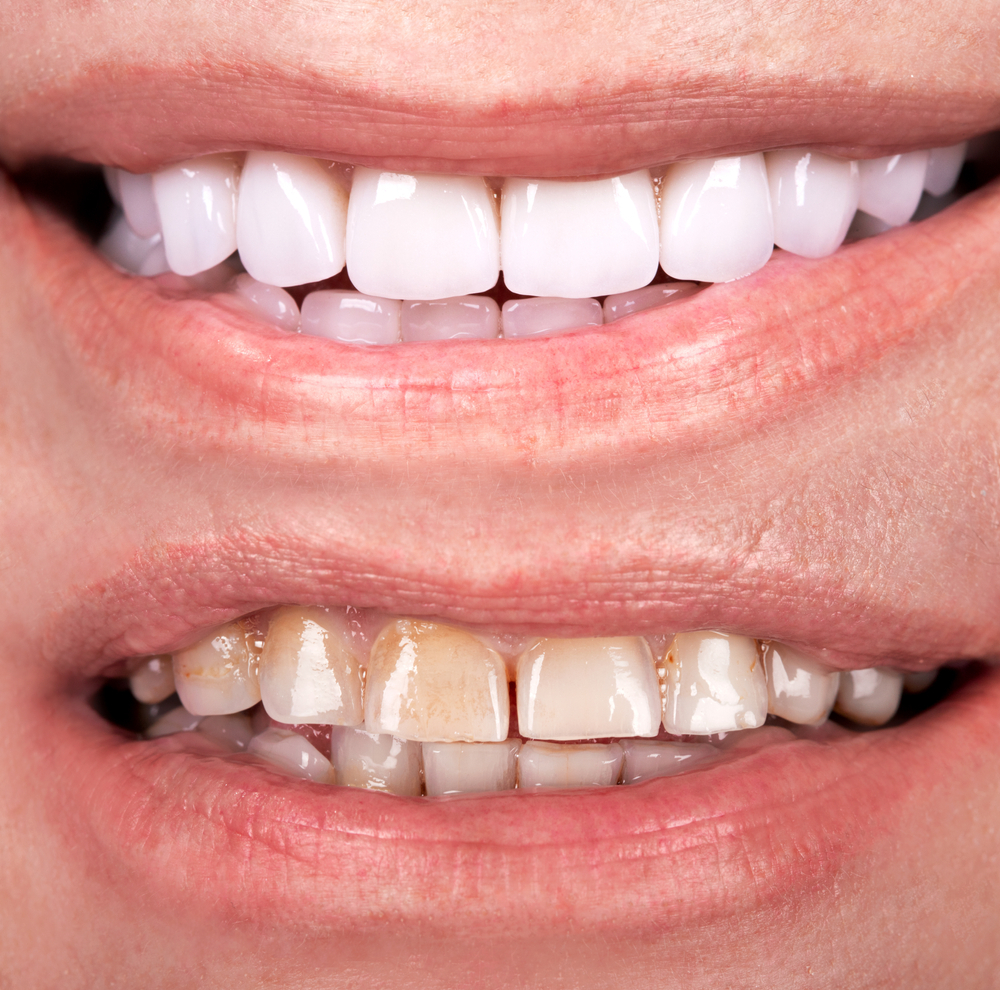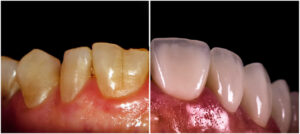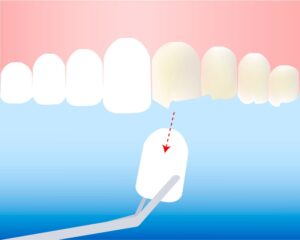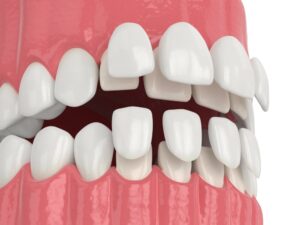So, how much do veneers cost in Los Angeles? The average cost of a single veneers in Los Angeles is between $1,000 and $2,500. This means that if you want to have all of your teeth veneered, you could end up paying anywhere from $10,000 to $25,000 or more.
It’s important to keep in mind that this is just an average and that the actual cost of veneers will depend on the factors we discussed earlier. For example, if you only want to have one or two teeth done, the cost will be lower than if you want to have your entire smile transformed.
Ready for a stunning smile transformation? Discover unbeatable veneer specials in Miami and take the first step towards your dream smile. Don’t wait, schedule now and seize this limited-time opportunity!
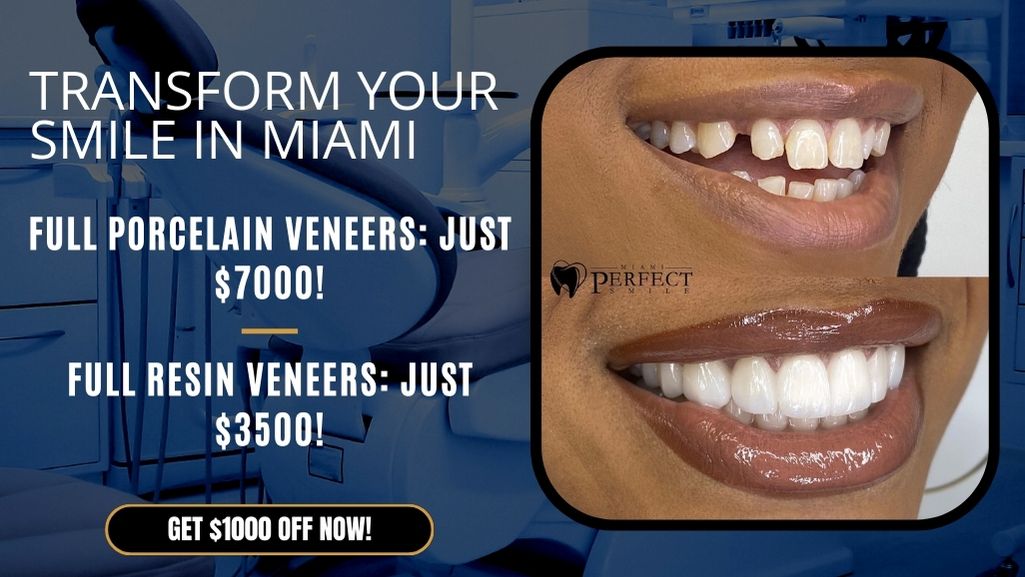
Factors that Affect Veneer Pricing
Veneers are a popular cosmetic dental procedure that can help improve the appearance of your teeth. They are thin shells that are custom-made to fit over your existing teeth and can be used to correct a wide range of cosmetic issues, including chips, cracks, gaps, and discoloration. However, the cost of veneers can vary depending on several factors. Here are some of the factors that can affect the pricing of veneers:
- Material: The material used to make the veneers can affect the cost. The two most common materials used for veneers are porcelain and composite resin. Porcelain veneers are more expensive than composite resin veneers, but they are also more durable and last longer.
- Number of Teeth: The number of teeth that you want to have veneered can also affect the cost. The more teeth you want to have done, the higher the cost will be.
- Location: The cost of living and the cost of dental care can vary from one location to another. This means that the cost of veneers in one city or state may be different from the cost in another.
- Dentist’s Experience: The experience and skill level of the dentist performing the procedure can also affect the cost. A more experienced and skilled dentist may charge more for veneers than a less experienced dentist.
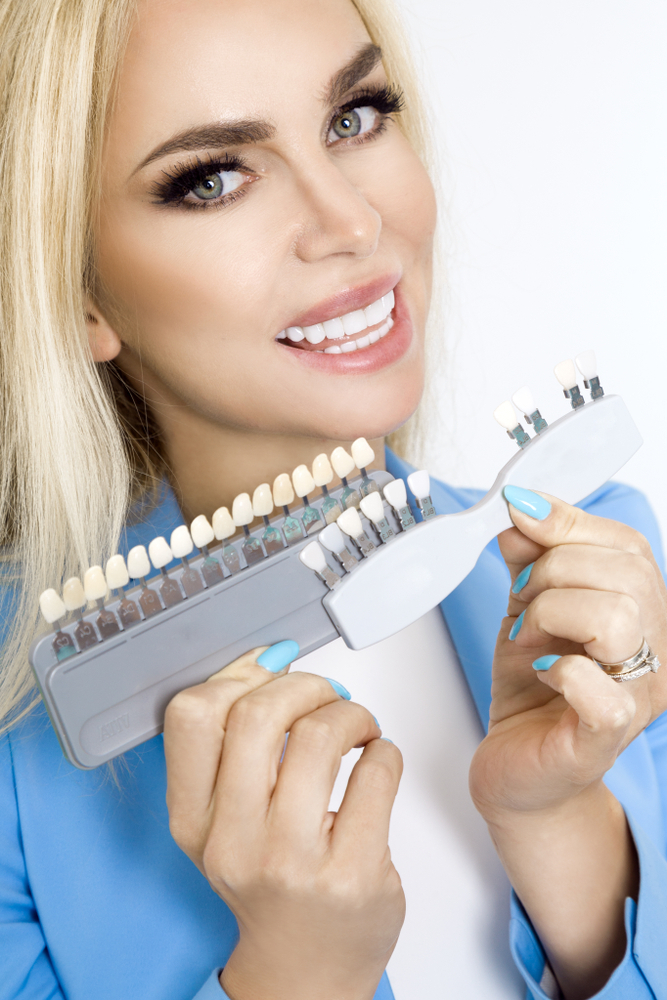
It’s important to keep in mind that the cost of veneers is an investment in your self-confidence and overall oral health. While the cost may be high, many people find that the benefits of veneers are well worth the investment.
Savings Comparison with Other Cities
| Savings Comparison with Other Cities | Details |
|---|---|
| Cost of Veneers in Los Angeles | Can range from $1,000 to $2,500 per tooth. |
| Cost of Veneers in New York or Chicago | Can be even higher, with some dentists charging up to $4,000 per tooth. |
| Cost of Veneers in smaller cities or rural areas | May be lower, with some dentists charging as little as $800 to $1,000 per tooth. |
| Factors that affect the cost | The cost of living and the cost of dental care can vary significantly from one city to another, which can affect the cost of veneers. Additionally, the experience and skill level of the dentist performing the procedure can also affect the cost. |
I hope this helps! Let me know if you have any other questions.
Choosing the Right Veneer Specialist in Los Angeles
Choosing the right veneer specialist in Los Angeles is an important decision that can have a significant impact on your oral health and overall wellbeing. Here are some tips to help you choose the right veneer specialist:
- Look for Experience and Expertise: Veneers are a complex and specialized dental procedure, so it’s important to look for a specialist who has experience and expertise in performing the procedure. Look for a dentist who has a proven track record of successful veneer procedures and who has undergone specialized training in cosmetic dentistry.
- Check for Reviews and Referrals: Reading reviews and getting referrals from friends and family members can be a great way to find a reputable veneer specialist in Los Angeles. Look for a dentist who has a high rating and positive reviews from satisfied patients.
- Check for Certifications: Look for a dentist who is certified by a reputable dental association or board. This ensures that the dentist has met the highest standards of quality and expertise in performing veneer procedures.
- Schedule a Consultation: Before making a decision, schedule a consultation with the veneer specialist. This will give you the opportunity to ask questions, learn more about the procedure, and get a sense of the dentist’s expertise and bedside manner.
- Consider Cost: While cost should not be the only factor in your decision, it’s important to consider how much the veneer specialist charges for the procedure. Compare prices and make sure you’re getting a fair and reasonable price for the quality of care you’ll receive.
By following these tips, you can find a reputable and experienced veneer specialist in Los Angeles who can help you achieve the smile you’ve always wanted.
Maintaining Your Veneers for Longevity
If you’ve invested in veneers, it’s important to take good care of them to ensure they last as long as possible. Here are some tips for maintaining your veneers for longevity:
- Practice Good Oral Hygiene: Just like your natural teeth, your veneers need to be kept clean to prevent decay and discoloration. Brush twice a day with a soft-bristled toothbrush and fluoride toothpaste, and floss at least once a day to remove plaque and food particles.
- Avoid Hard or Sticky Foods: While veneers are durable, they are not indestructible. Avoid biting into hard foods like nuts, ice, or hard candy, as well as sticky foods like caramel or taffy. These can cause damage to your veneers and increase the risk of cracking or chipping.
- Wear a Mouthguard: If you play sports or grind your teeth at night, wearing a mouthguard can help protect your veneers from damage. A mouthguard can help absorb the impact of any blows to your teeth and prevent grinding, which can wear down your veneers over time.
- Avoid Staining Substances: Veneers are resistant to staining, but they are not completely stain-proof. Avoid substances that can cause staining, such as coffee, tea, wine, and tobacco products. If you do consume these substances, rinse your mouth with water afterward and brush your teeth as soon as possible to minimize the risk of staining.
- Visit Your Dentist Regularly: Regular dental check-ups and cleanings are important for maintaining the health of your veneers. Your dentist can monitor your veneers for any signs of damage or decay and provide you with tips on how to care for them properly.
By following these tips, you can help ensure that your veneers last for many years to come. Remember to take good care of your oral health and consult with your dentist if you have any concerns or questions about your veneers.
Benefits of Getting Veneers in Los Angeles
There are many benefits to getting veneers in Los Angeles. Here are some of the most significant benefits:
| Benefits of Getting Veneers in Los Angeles | Details |
|---|---|
| Improved Appearance | Veneers can correct a wide range of cosmetic dental problems, including chips, cracks, gaps, and discoloration, resulting in a brighter, more symmetrical smile. |
| Increased Confidence | A beautiful smile can have a significant impact on your self-confidence and self-esteem, making you feel more comfortable and confident in social and professional situations. |
| Durable and Long-lasting | Veneers are made from high-quality materials and designed to last for many years with proper care, making them a long-lasting solution for cosmetic dental problems. |
| Minimally Invasive | Getting veneers is a minimally invasive procedure that typically involves only minor discomfort and a short recovery period, allowing you to enjoy the benefits of a beautiful smile without extensive dental work. |
| Customizable | Veneers are custom-made to fit your teeth and can be designed to look and feel like natural teeth, giving you the flexibility to choose the size, shape, and color of your veneers to achieve the exact look you want. |
| Increased Functionality | Veneers can help correct bite issues, improve chewing and speech, and even protect your teeth from further damage, in addition to improving the appearance of your teeth. |
I hope this helps! Let me know if you have any other questions.
Veneers vs. Other Cosmetic Dental Procedures
When it comes to cosmetic dental procedures, there are many options available. Here are some key differences between veneers and other popular cosmetic dental procedures:
- Veneers vs. Teeth Whitening: While teeth whitening can help brighten your teeth and remove surface stains, it may not be effective for more severe discoloration or stains. Veneers, on the other hand, can be used to cover up discoloration and give you a brighter, more uniform smile.
- Veneers vs. Crowns: Crowns are often used to cover up severely damaged or decayed teeth, while veneers are primarily used for cosmetic purposes.
- Veneers vs. Bonding: Bonding is a cosmetic dental procedure that involves applying a tooth-colored resin to the tooth and shaping it to improve its appearance. While bonding can be effective for minor cosmetic issues, veneers can provide a more long-lasting and durable solution for more significant cosmetic problems.
- Veneers vs. Orthodontic Treatment: Orthodontic treatment, such as braces or clear aligners, can be used to correct bite issues, misaligned teeth, and other dental problems. While orthodontic treatment can be effective, it can also be time-consuming and require a significant investment of time and money.

Overall, veneers can be an excellent choice for people looking to improve the appearance of their teeth and achieve a brighter, more symmetrical smile. While there are other cosmetic dental procedures available, veneers offer a unique combination of durability, customization, and minimally invasive treatment.
Comparison with Teeth Whitening and Bonding
Veneers, teeth whitening, and bonding are all popular cosmetic dental procedures that can improve the appearance of your teeth. Here’s how they compare:
| Comparison of Veneers, Teeth Whitening, and Bonding | Details |
|---|---|
| Procedure | Veneers are custom-made porcelain or composite shells that cover the front surface of your teeth. Teeth whitening uses a bleaching agent to remove surface stains and discoloration. Bonding involves applying a tooth-colored resin to your teeth and shaping it to improve their appearance. |
| Durability | Veneers can last up to 10-15 years with proper care, while bonding can last up to 5-10 years. Teeth whitening typically requires touch-up treatments to maintain results. |
| Effectiveness | Veneers and bonding can be effective at correcting a wide range of cosmetic dental problems, while teeth whitening is best suited for milder cases of discoloration. |
| Cost | Veneers are typically more expensive than teeth whitening or bonding, but they offer a more durable and long-lasting solution for cosmetic dental problems. |
| Invasiveness | Veneers and bonding are minimally invasive procedures that involve removing a small amount of tooth enamel. Teeth whitening is non-invasive and doesn’t require any tooth structure removal. |
| Customization | Veneers and bonding are custom-made to fit your teeth and can be designed to match the shape, size, and color of your natural teeth. Teeth whitening is not customizable and may result in uneven results if not performed correctly. |
What are Veneers and How Do They Work?
Veneers are thin, custom-made shells that are placed over the front surface of your teeth to improve their appearance. They are typically made from porcelain or composite resin and can be used to correct a wide range of cosmetic dental problems, including chips, cracks, gaps, and discoloration.
The process of getting veneers typically involves several steps. First, your dentist will conduct a comprehensive dental exam to determine if veneers are right for you. If you’re a good candidate, your dentist will prepare your teeth by removing a small amount of tooth enamel to make room for the veneers.
Next, your dentist will take impressions of your teeth and send them to a dental lab, where your veneers will be custom-made to fit your teeth perfectly. In the meantime, your dentist may place temporary veneers over your teeth to protect them.
Once your permanent veneers are ready, your dentist will bond them to your teeth using a special adhesive. The bonding process typically involves etching the surface of your teeth to create a rough surface for the veneers to adhere to. Your dentist will then apply the adhesive and carefully place the veneers over your teeth, making any necessary adjustments to ensure a perfect fit.
References:
- Goldstein, R. E., et al. (2018). Esthetics in Dentistry. Wiley Blackwell.
